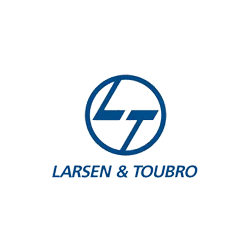Ingots

Ingots
An ingot is a metal block which is casted into variety of shape/size/length & is a semi-finished product, it is first step in steel making.
Since we first started making steel, it is almost two decades now, Kesri Alloys has been making carbon steel, alloy steel and stainless steel ingots. Over time, we’ve almost certainly honed our skills.
Kesri Alloys supplies carbon steel, alloy steel and stainless steel ingots that have been approved by the IBR which are suitable for open die forging, ring rolling, upsetting, and rolling processes. Forging quality carbon steel, alloy steel and stainless steel ingots are our area of expertise.
Since we first started making steel, it is almost two decades now, Kesri Alloys has been making carbon steel, alloy steel and stainless steel ingots. Over time, we’ve almost certainly honed our skills.
Kesri Alloys supplies carbon steel, alloy steel and stainless steel ingots that have been approved by the IBR which are suitable for open die forging, ring rolling, upsetting, and rolling processes. Forging quality carbon steel, alloy steel and stainless steel ingots are our area of expertise.
Kesri Alloys is manufacturing carbon steel, alloy steel and stainless steel Ingots since long, when we began producing steel and has virtually gained expertise over the period of time. Kesri Alloys offer IBR approved carbon steel, alloy steel and stainless steel ingots for open die forging, ring rolling, up-setting and rolling applications. We are specialized in manufacturing Forging Quality carbon steel, alloy steel and stainless steel Ingots.
| SIZE (Inches) | SHAPE | LENGTH (Inches) | INGOT WEIGHT (Kgs) APPROX. |
|---|---|---|---|
| 10X12 | Square | 54 | 850 |
| 11X13 | Square | 54 | 1000 |
| 11X15 | Square | 66 | 1400 |
| 13X16 | Fluted | 72 | 1600 |
| 14X18 | Square | 66 | 2150 |
| 16X16 | Round | 90 | 2200 |
| 18X21 | Fluted | 66 | 2650 |
| 17X21 | Square | 66 | 2850 |
| 19X23 | Fluted | 72 | 3400 |
| 20X20 | Round | 90 | 3600 |
| 21X24 | Fluted | 72 | 3850 |
| 20X24 | Square | 72 | 4150 |
| 22X27 | Square | 72 | 5300 |
| 27X32 | Fluted | 72 | 7100 |
| 29X35 | Fluted | 72 | 8300 |
| 32X39 | Fluted | 72 | 10200 |
| 35X41 | Fluted | 60 | 10200 |
- Ingots are available in all grades of carbon steel, alloy steel and stainless steel
- Ingots are suitable for rolling, ring rolling, forging and up-setting
- Ingots are free from surface defects & cracks
- Ingots are marked with grade, size & heat number
- Ingots are suitable for sawing in cold condition
- Ingots are available in spot ground or fully ground condition
- Ingots are available in Heat Treated – annealed condition
- Ingots are free from radioactive elements, mercury & lead contamination
Stainless Steel grades of Ingots
- AISI 301, 302, 303, 304, 304L, 310, 316, 316L, 317, 321, 347…
- AISI 410, 416, 420, 430, 431…
Carbon Steel Grades of Ingots
- En8A, En8B, En8C, En8D, En9, C-45, C-50…
- CL I, CL II, CL III, CL IV, CL V, CL VI….
- SA 105, LF 2…
- AISI 1008, 1010, 1015, 1018, 1020, 1025, 1030, 1040…
Alloy Steel Grades of Ingots
- LF 3, LF 4…
- En15A, En15B, LF2, En201…
- 16MnCr5, 20 MnCr5, En18, En31, AISI 52100…
- AISI 8620, 4130, 4140, 4150…
- En47, En353, En354…
- F-5, F-9, F-11, F-12, F-22…
| SIZE (Inches) | Shape | LENGTH (Inches) | Ingot WEIGHT (Kgs) approx. | No of Pcs Per Heat |
|---|---|---|---|---|
| 7X8 | Square | 48 | 335 | 28 |
| 9X10 | Square | 48 | 540 | 18 |
| 10X12 | Square | 54 | 850 | 10 |
| 11X13 | Square | 54 | 1000 | 8 |
| 11X15 | Square | 65 | 1400 | 6 |
| 13X16 | Fluted | 72 | 1500 | 6 |
| 14X18 | Square | 65 | 2200 | 4 |
| 17X21 | Square | 60 | 2600 | 3 |
| 18X21 | Fluted | 72 | 2600 | 3 |
| 19X22 | Fluted | 72 | 3000 | 3 |
| 19X22 | Fluted | 80 | 3300 | 3 |
| 21X25 | Fluted | 72 | 3900 | 2 |
| 20X24 | Square | 65 | 3600 | 3 |
| 20X24 | Square | 72 | 4200 | 2 |
| 23X27 | Fluted | 57 | 4300 | 2 |
| 27X32 | Fluted | 72 | 6900 | 1 |
| 29X35 | Fluted | 72 | 8200 | 1 |
| 32X39 | Fluted | 72 | 10000 | 1 |
| 36X42 | Fluted | 60 | 10000 | 1 |
| 16X16 | Round | 90 | 2200 | 4 |
| 20X20 | Round | 90 | 3600 | 3 |
- Ingots are available in all grades of carbon steel, alloy steel and stainless steel
- Ingots are suitable for rolling, ring rolling, forging and up-setting
- Ingots are free from surface defects & cracks
- Ingots are marked with grade, size & heat number
- Ingots are suitable for sawing in cold condition
- Ingots are available in spot ground or fully ground condition
- Ingots are available in Heat Treated – annealed and tempered condition
- Ingots are free from radioactive elements, mercury & lead contamination
Stainless Steel grades of Ingots
- AISI 301, 302, 303, 304, 304L, 310, 316, 316L, 317, 321, 347…
- AISI 410, 416, 420, 430, 431…
Carbon Steel Grades of Ingots
- En8A, En8B, En8C, En8D, En9, C-45, C-50, SA 105…
- CL I, CL II, CL III, CL IV, CL V, CL VI….
- SA 105, LF 2…
- AISI 1008, 1010, 1015, 1018, 1020, 1025, 1030, 1040…
Alloy Steel Grades of Ingots
- LF 3, LF 4…
- En15A, En15B, LF2, En201…
- 16MnCr5, 20 MnCr5, En18, En31, AISI 52100…
- AISI 8620, 4130, 4140, 4150…
- En19, En24, En25, En36, En47, En353, En354…
- En19, En24, En25, En36, F-5, F-9, F-11, F-12, F-22…
A Brief about Ingots
An ingot is a steel block, which is casted into a shape suitable for further processing having a cross-section which may be square, rectangular, polygonal, round, oval shaped according to the profile required. Ingots are manufactured by the freezing of a molten liquid metal in a cast iron ingot molds. Cast iron ingot molds play a vital role in the ingot manufacturing and Kesri Alloys takes several precautions in selecting ingot molds. A variety of designs exist for the cast iron ingot molds which may be selected to suit the physical properties of the liquid metal and the solidification process.
Firstly, the ingot mold is designed to completely solidify and form an appropriate grain structure required for later processing as the structure formed by the freezing of liquid metal controls the physical properties of the material. Secondly, the shape and size of the mold is designed to allow for ease of ingot handling and downstream processing. Finally the ingot mold is designed to minimize liquid metal wastage as it increases manufacturing costs of ingots and will finally affect the cost of finished products. The fluted design of ingot molds increases heat transfer owing to a larger contact area. Ingot molds may be either solid “massive” design or water-cooled shells depending upon heat transfer requirements. Ingot molds are tapered to prevent the formation of cracks due to uneven cooling. Crack or void formation occurs as the liquid to solid transition has an associated volume change for a constant mass of material.
Formation of these ingot defects may render the cast ingot useless and may need to be re-melted, recycled or discarded. In the early days of modern steel industry, ingot teeming was done by top pouring into tapered cast iron molds for all applications. For rolled plate applications rectangular cross section ingot molds were used. For rolled bar and some rolled strip applications the ingot molds were either square or round in shape but for forgings, the ingots were usually round or octagonal in cross section and particularly for the larger sizes of forgings, fluted ingots were used to reduce the risk of surface cracking during forging.
For Enquiries: info@ksl.in
An ingot is a steel block, which is casted into a shape suitable for further processing having a cross-section which may be square, rectangular, polygonal, round, oval shaped according to the profile required. Ingots are manufactured by the freezing of a molten liquid metal in a cast iron ingot molds. Cast iron ingot molds plays a vital role in the ingot manufacturing and Kesri Alloys takes several precautions in selecting ingot molds. A variety of designs exist for the cast iron ingot molds, which may be selected to suit the physical properties of the liquid metal and the solidification process.
Firstly, the ingot mold is designed to completely solidify and form an appropriate grain structure required for later processing, as the structure formed by the freezing of liquid metal controls the physical properties of the material. Secondly, the shape and size of the mold is designed to allow for ease of ingot handling and downstream processing. Finally the ingot mold is designed to minimize liquid metal wastage as it increases manufacturing costs of ingots and will finally affect the cost of finished products. The fluted design of ingot molds increases heat transfer owing to a larger contact area. Ingot molds may be either solid “massive” design, or water-cooled shells, depending upon heat transfer requirements. Ingot molds are tapered to prevent the formation of cracks due to uneven cooling. Crack or void formation occurs as the liquid to solid transition has an associated volume change for a constant mass of material.
Formation of these ingot defects may render the cast ingot useless, and may need to be re-melted, recycled or discarded. In the early days of modern steel industry, ingot teeming was done by top pouring into tapered cast iron molds for all applications. For rolled plate applications rectangular cross section ingot molds were used. For rolled bar and some rolled strip applications the ingot molds were either square or round in shape, but for forgings, the ingots were usually round or octagonal in cross section, and particularly for the larger sizes of forgings, fluted ingots were used to reduce the risk of surface cracking during forging.
Kesri Alloys manufactures carbon steel, alloy steel and stainless steel ingots, which comes in various thickness and dimensions to meet with various industrial usages. We have developed these carbon steel, alloy steel and stainless steel ingots to the height of excellence to be in sync with set industrial norms. The ultra modern calibrated testing facilities in Kesri Alloys, ensures roll out of highest quality of carbon steel, alloy steel and stainless steel ingots. Kesri Alloys manufactures these carbon steel, alloy steel and stainless steel ingots by using hi-tech machineries, which lend these carbon steel, alloy steel and stainless steel ingots unique features and make them craze for a lot of prestigious industries. Each and every ingot which is manufactured at Kesri Alloys undergoes a rigorous inspection procedure to ensure that our clients get the finest quality. Ring rollers and forgers use these carbon steel, alloy steel and stainless steel ingots to produce parts such as gears, flanges, bearings, valves, fasteners, machine tools, daily equipments, surgical & medical parts, etc.
For Enquiries: info@ksl.in
Our End Users






















































